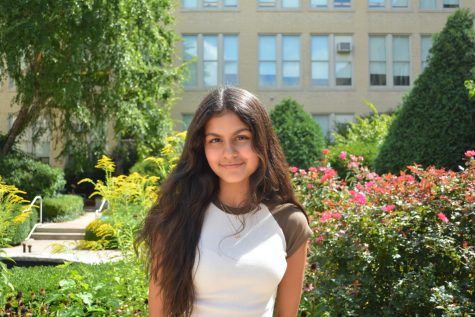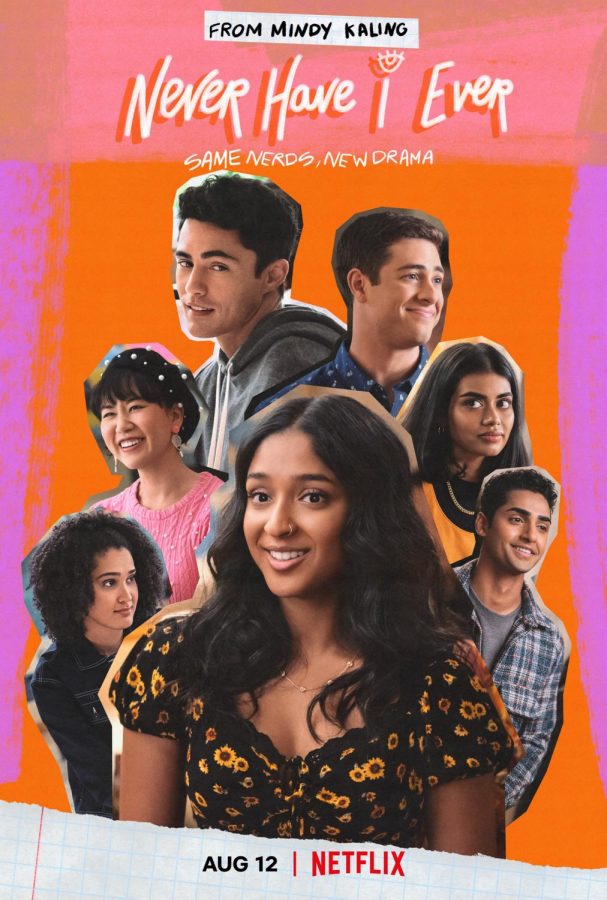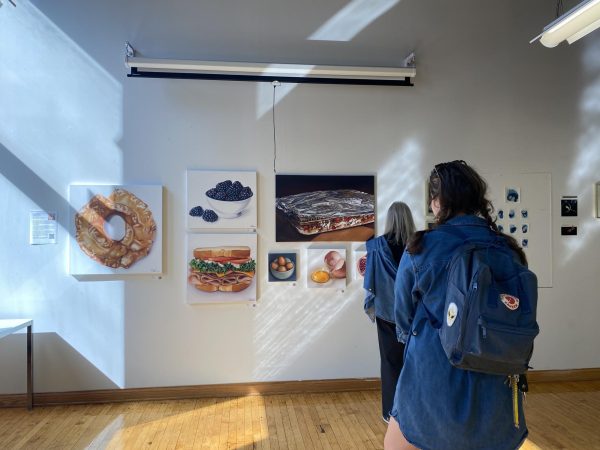Never Have I Ever Review: Redefining South Asian Representation
The Netflix hit “Never Have I Ever” released its third season on Netflix on Aug. 12. This year’s season featured many of the same familiar antics for fans of the show: erratic decisions and an overall humorous tone providing a comfortable, binge-watching experience.
Last season, Devi Vishwakumar (Maitreyi Ramakrishnan) was known for her incredibly awful decision-making, which eventually accumulated into a domino effect of unfortunate events. She believed that she and her mother, Nalini (Poorna Jagnnathan), and cousin, Kamala (Richa Moorjani) were moving to India in the middle of the school year, which she used to justify her behavior. Once she found out that they had decided to stay in Sherman Oaks, California, Devi had to face the consequences of her actions.
This season, however, did waver in its characterization of Devi. The last season was peak “Crazy-Devi,” with her making incredibly questionable decisions surrounding her love life, friendships, and academic endeavors that left the viewers wanting to scream at the screen.
This season, Devi shows immense character growth, which was a positive change to see. While she still has the lovable trademarks of her personality (being outspoken and sassy), it is clear that she was able to learn from some of her prior mistakes. Devi is also shown beginning to fully come to terms with her emotions in therapy following the loss of her father, which also provides several heartfelt moments that are truly representative of the complicated mother-daughter dynamic.
One aspect of the show that it is most accredited for is its representative nature. The cast is incredibly diverse with positive LGBTQ+ representation, and characters each having their own complex arcs. This is incredibly refreshing to see on mainstream television. More shows than I can count have token minority characters whose identities inherently serve as comic relief. This is what “Never Have I Ever” does well — it exemplifies the idea that minority characters don’t exist just to be the punch line.
As an Indian-American girl, I see much of myself in Devi and her other Indian friends, which is something I lacked growing up while watching TV.
This season also adds a new potential love interest for Devi — an Indian boy named Des (Anirudh Pisharody). He calls Devi out on her internalized racism, which for many viewers (such as myself) was a relief. It’s also really uncommon to see an Indian boy’s character not be demoted to the unlikable nerd, but rather to be a boy that is viewed as attractive and cool. This was a great step forward in dissolving the stereotypical narrative that has followed South Asians for so long.
The show also depicts an Indian girl being pinned for, which is something that hasn’t been present in media previously, but is starting to emerge thanks to shows like “Never Have I Ever” and “Bridgerton.” This season may have its differences, but it carries the same original intent of the show — representation that doesn’t feel forced.
The beloved cast is still present, with Fabiola Torres (Lee Rodriguez), Eleanor Wong (Ramona Young) and Aneesa Qureshi (Megan Suri) being her best friends throughout the series, as well as Paxton Hall-Yoshida (Darren Barnett) and Ben Gross (Jaren Lewison) providing the famous love-triangle dynamic once again. Whether you’re Team Ben, Team Paxton, or even Team Devi, you are surely going to enjoy this season.
Your donations directly fund the Lane Tech student journalism program—covering essential costs like website hosting and technology not supported by our school or district. Your generosity empowers our student reporters to investigate, write, and publish impactful stories that matter to our school community.
This website is more than a publishing platform—it's an archive, a research tool, and a source of truth. Every dollar helps us preserve and grow this resource so future students can learn from and build on the work being done today.
Thank you for supporting the next generation of journalists at Lane Tech College Prep!

Avaani is a senior, and this is her second year working with The Champion. While she enjoys covering news stories, her favorite stories to write are opinion...






